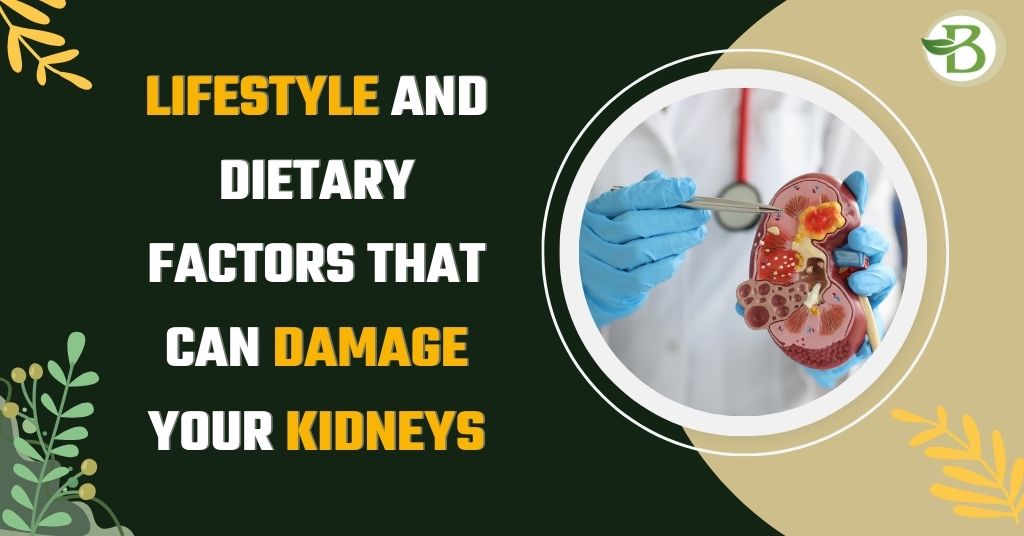Most prevalent reasons for kidney damage
People often believe that patients with certain medical conditions, such as diabetes and high blood pressure, are the ones who can be affected by kidney diseases. However, this is not always the case. Habits like alcoholism, not maintaining proper hydration, and overuse of painkillers can also put you at risk.
Located on either side of the spine, below the ribcage, the kidneys are one of the most versatile organs of the human body. When both of our kidneys are working well, they can filter all the blood present in our body in just 30 minutes. The organs have a lot of functions to be performed on a daily basis and it is essential to maintain the well-being of our kidneys.
This blog explores the major causes of kidney damage. Being cautious of them and taking appropriate measures can help you protect your kidney health. Continue reading to know more.
What habits make my kidneys ill?
As the saying goes, “too much of anything is good for nothing” is also true for your kidneys. Whether it is too much sugar present in your blood or overconsumption of alcohol, such destructive lifestyle habits can have a significant impact on your renal health. They can cause complications like chronic kidney disease symptoms, acute kidney injuries, or autoimmune diseases.
The following actions can be harmful to your kidneys. Being mindful of these factors can help you protect the well-being of the organ;
-
Uncontrolled Diabetes:
It is one of the most common medical issues that lead to kidney damage. Patients with diabetes have high sugar content in their blood that can significantly harm blood vessels in the kidneys, which are responsible for purifying the blood. So, patients must keep their diabetes in control.
-
High Blood pressure:
Blood arteries can get constricted and narrowed by high blood pressure, which can ultimately weaken and damage them throughout the body, including the kidneys. This narrowing reduces blood flow. If the blood vessels in your kidneys are harmed, they may not function properly. When this occurs, the organ is unable to remove all waste and excess fluid from your body.
-
Abusive use of painkillers:
Are you a person who rushes to a chemist’s shop, even experiencing mild pain? Well, these over-the-counter medicines might be beneficial in achieving instantaneous relief from a headache due to office stress or back pain due to sitting for long hours. Still, they can be highly harmful to your kidney health. Try to cut down on the consumption of such medicines and visit your doctor if you are suffering from such problems regularly.
-
Dehydration:
Not consuming enough fluids for a long duration of time can slow the blood flow to your kidneys, harming the organs and leading to consequences such as kidney stones. Patients can experience small urine output due to dehydration, causing improper excretion of minerals and waste products, leading to the formation of crystals that affect kidney function.
-
Alcohol and smoking:
Alcoholism can cause dehydration and negatively impact your high blood pressure, putting stress on your kidneys, whereas smoking narrows your blood vessels, even those present in your kidneys. So, as you can see, these two habits can indirectly impact the well-being of your kidneys. It is not worth drinking a glass of whisky for short-term pleasure and putting your health at risk.
As you have observed in the upper section, most of the factors that cause damage to our renal health are preventable in nature. However, along with these factors, certain dietary habits can also contribute to developing such issues.
What are five foods to avoid for kidney disease?
Consumption of certain food items in excessive quantity can make it tough for your kidneys to function properly. Below is a list of these foods:
- Salt (Sodium): Commonly found in chips, canned goods, fast food, and processed snacks. Excessive salt consumption can raise blood pressure, which may strain the kidneys and exacerbate kidney diseases over time.
- Sugar: Present in sodas, candies, cakes, sweetened cereals, and other sugary foods. A high intake of sugar can lead to obesity and type 2 diabetes, both of which are significant contributors to kidney damage and long-term kidney issues.
- Caffeine: Found in coffee, tea, and sodas. Overconsumption of caffeine can elevate blood pressure, lead to dehydration, and place additional strain on the kidneys.
- Meat: Diets high in red meat and other protein-rich animal products can overload the kidneys, resulting in the accumulation of harmful byproducts such as uric acid.
- Dairy: This includes milk, cheese, yogurt, butter, and other dairy products. Excessive dairy consumption can lead to calcium overload, which raises the risk of kidney stones and puts extra stress on already weakened kidneys.
So, these are the various factors and eating habits that can put your kidney health at risk. Other than these, having a family history of such conditions is also a leading cause behind such issues. For all of us, keeping our bodies healthy and fit is imperative. It is not a luxury but a subtle need for a good life. We hope being aware of these factors will help you take better care of yourself.
Consult our kidney specialists today to secure your future!
Kidney diseases are progressive in nature. Ignoring such issues till they cause severe complications is never an option. Consulting our homeopathic experts promptly and being consistent with our cure for chronic kidney disease can benefit patients by allowing them to gain control over their disease and live a normal life.
Our kidney homeopathic remedy aims to target the root cause of the disease, taking into account the unique symptoms and specific conditions of the patients. Not only this, but our chronic kidney disease homeopathic treatment approach is also non-invasive, side-effect-free, and highly personalised to the requirements of the patients. Contact us today to learn more about our treatment plans.


